
International officials expressed their solidarity with the families of the Srebrenica victims and pledged never to forget what happened on July 11, 1995 in the eastern Bosnian town, calling on those who still deny that it was genocide, to acknowledge it and move on. Pročitaj više
Bosnians gathered on Sunday to bury the remains of another 19 victims of the 1995 massacre and commemorated more than 8,000 Muslim men and boys killed in Europe’s worst atrocity since WWII.
The number of guests this year is lower than usual because of the pandemic and just like last year, many world leaders addressed the guests via video link, including representatives of the US, Saudi Arabia, Macedonia, Iran, the U.N. and Turkey.
U.S. Ambassador, Eric Nelson, called for an end of genocide denial. Those who committed those crimes bear individual responsibility.
The United States remains determined in their support for all those in Bosnia and Herzegovina who are willing to work on reconciliation, he said.
“The victims of genocide in Srebrenica, the families and their children deserve a peaceful and prosperous future in which everybody will have a chance to succeed,” Nelson said, adding that this will ensure that events like this never happen again.
Maltese Judge Carmel Agius, who presides over the International Residual Mechanism for Criminal Tribunals – a successor of the war crimes tribunal for former Yugoslavia – compared the genocide denial among Bosnian Serbs and in Serbia with the denial of basic scientific facts such as the existence of the coronavirus.
No conflict in the modern era has been so thoroughly investigated as the one that emerged in former Yugoslavia, he said, adding that a total of 23 judges from 29 countries, from five continents pronounced in 12 rulings that what happened in Srebrenica was genocide, he said.
Still, for over more than two decades, genocide denial has become the favourite weapon of those who want to maintain the division of Bosnia and Herzegovina, he said.
European Commissioner for Neighbourhood and Enlargement, Oliver Varhelyi, stressed that there is no place for genocide denial, glorification of war criminals or revision of history in the EU.
Europe has not forgotten its responsibility for failing to prevent and stop the war and the genocide, he said.
“It is also our duty to provide a constant reminder of our shared responsibility to prevent genocide from ever happening again. Therefore, it is our duty to remember Srebrenica forever,” he said.
Saad Bin Saleh Al-Sabti from the Parliamentary Group of Saudi-Bosnian Friendship also expressed his support for the victims and their families and reiterated the unchanging position of the Kingdom of Saudi Arabia to respect the sovereignty and territorial integrity of BiH and to support all forms of peace and coexistence.
Some officials have arrived in Potocari despite the pandemic, including Serbian opposition leaders Cedomir Jovanovic and Nenad Canak and Montenegrin President Milo Djukanovic, as well as current Deputy Prime Minister Dritan Abazovic.
“Serbia carries a huge burden and I am asking people not to have some understanding for the filth in our politics but to have some understanding for a country that has made many mistakes and those mistakes have now caught up with our generation,” Jovanovic said.
Serbia is confused about Bosnia and Herzegovina and does not have the strength to step out of the evil and the bloody quicksand it has created, he said.
Serbs will not find peace until they admit the crime, he concluded.
The Montenegrin delegation handed over to representatives of the Memorial Center a copy of a resolution condemning the Srebrenica genocide which the parliament in Podgorica adopted last month.
Priest Boris Bojovic, a representative of the Montenegrin Orthodox Church from Niksic who also came with the Montenegrin delegation, compared genocide denial with genocide itself.
“Unfortunately, we live in a region where a large number of people still deny the crime and can not deal with the fact that genocide was committed. We must first accept that and then move forward because nations can not be genocidal. Individuals are genocidal,” he said.
So far, 6,652 Srebrenica genocide victims have been buried at the Potocari Memorial Centre, while another 237 victims have been buried at other locations, according to the wishes of their families.
Nearly 1,000 victims are still missing.

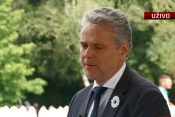

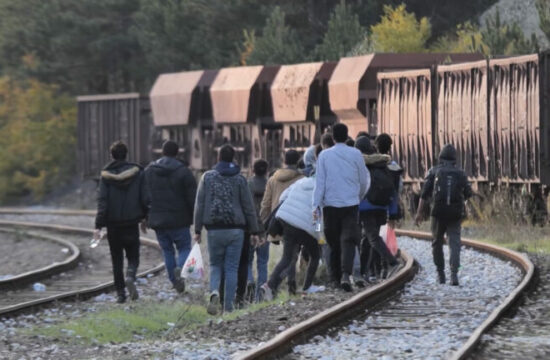
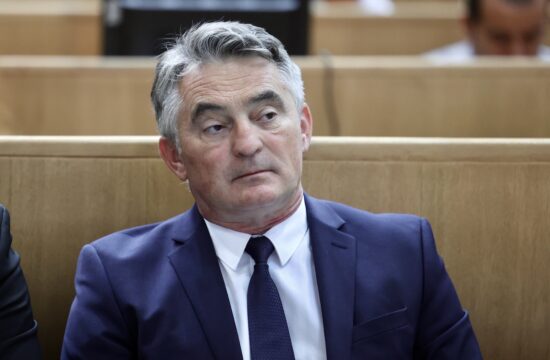
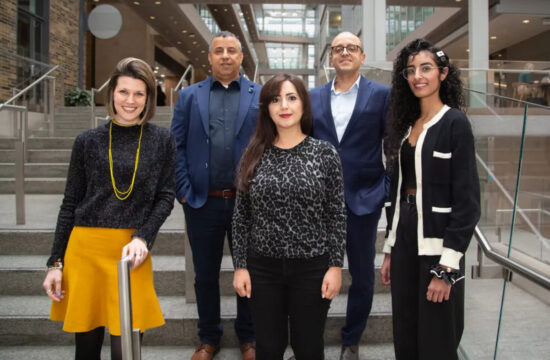
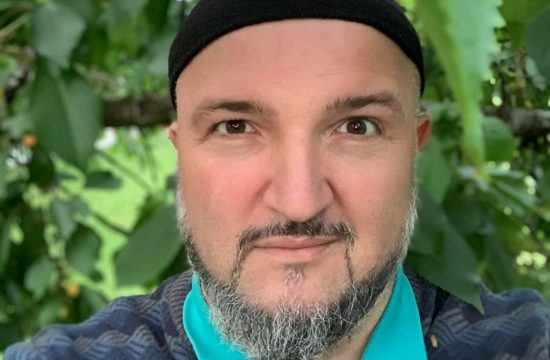
Kakvo je tvoje mišljenje o ovome?
Budi prvi koji će ostaviti komentar!